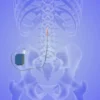At least 20 million Americans suffer from peripheral neuropathy, a condition that involves damage to the nerves outside your central nervous system. Peripheral nerves include all the nerves that help you feel pain, temperature, and touch and help your organs, muscles, and glands function.
At Advanced Spine and Pain Center, our team helps patients manage the symptoms of peripheral neuropathy to improve their comfort and well-being. In this post, our team reviews some of the steps you can take to prevent peripheral neuropathy or limit its progression.
Peripheral neuropathy: Understanding the basics
Before delving into prevention strategies, it’s essential to understand why and how peripheral neuropathy happens, along with its symptoms. Peripheral neuropathy responds best to early intervention, and researchers believe many people have peripheral neuropathy without knowing it, resulting in treatment delays that can lead to permanent nerve damage.
Peripheral neuropathy happens for different reasons, but some of the most common causes include:
- Diabetes
- Traumatic injuries
- Neuromuscular diseases
- Infections
- Exposure to toxins, including certain medications
- Autoimmune and vascular diseases
- Nutrient deficiencies
- Alcohol abuse
- Tumor growth
Many people have idiopathic neuropathy, a type of neuropathy that has an unknown (or unidentified) cause.
Peripheral neuropathy can cause different symptoms depending on which nerves are affected. Some common symptoms to look for include:
- Limb pain or weakness
- Tingling, numbness, or pins-and-needles sensations
- Foot pain or slow-to-heal foot sores
- Changes in temperature sensation
- Problems with balance or coordination
- Loss of bladder or bowel control
Pain associated with peripheral neuropathy can vary in intensity, presenting as dull, chronic aches or sharp, electricity-like bursts.
Preventing peripheral neuropathy
Neuropathy can have a devastating impact on your life. Still, fortunately, there are steps you can take to reduce your risk of developing neuropathy or prevent its progression if you’re already affected.
Manage diabetes
Peripheral neuropathy is a common consequence of unmanaged diabetes. About half of all people with diabetes also have some degree of peripheral neuropathy (called diabetic neuropathy).
Managing diabetes with medication and lifestyle changes, like healthy eating and regular exercise, is important for preventing it. Because nerves are deeply involved in organ function, managing other underlying chronic diseases is important to optimize health and avoid nerve-related problems.
Focus on healthy eating
A healthy, balanced diet supports optimal nerve health and helps prevent nerve problems. Deficiencies of some vitamins, like some B vitamins, can lead to nerve-related problems.
Supplements may help, but ideally, you should get these nutrients through healthy eating choices, including lots of leafy green vegetables, colorful fruits and vegetables, and healthy fats.
Limit alcohol consumption
Alcohol is a toxic substance that’s metabolized by most cells and tissues. It’s also a common cause of neuropathy (called alcoholic neuropathy). The World Health Organization reports no amount of alcohol is “safe” for our health. To avoid nerve damage, avoid alcohol consumption or at least limit it.
Protect against toxins
Disinfectants, cleansers, pesticides, herbicides, and other chemical products contain various toxins, some of which can damage your nerves. Some airborne pollutants also contain nerve toxins. If you’re exposed to these products and substances at work or elsewhere, follow all safety instructions and wear protective gear, including rubber gloves and respirators.
Seek medical care immediately
If you develop symptoms of peripheral neuropathy, prompt medical evaluation can help slow the development of nerve involvement or even reverse it. Our team offers advanced therapies, like peripheral nerve stimulation, and lifestyle guidance to help you stay healthy.
Find relief for your peripheral neuropathy symptoms
Ideally, you want to prevent peripheral neuropathy before it occurs, but if you already have symptoms, some treatments can help. In addition to the lifestyle changes listed above, our team recommends therapies focused on blocking pain signals and improving your overall function and quality of life.
Every treatment plan is based on each patient’s unique and specific needs for long-term benefits. To learn how we can help you prevent or manage peripheral neuropathy, book an appointment online or over the phone with the team at our three locations in San Antonio, Texas, today.





